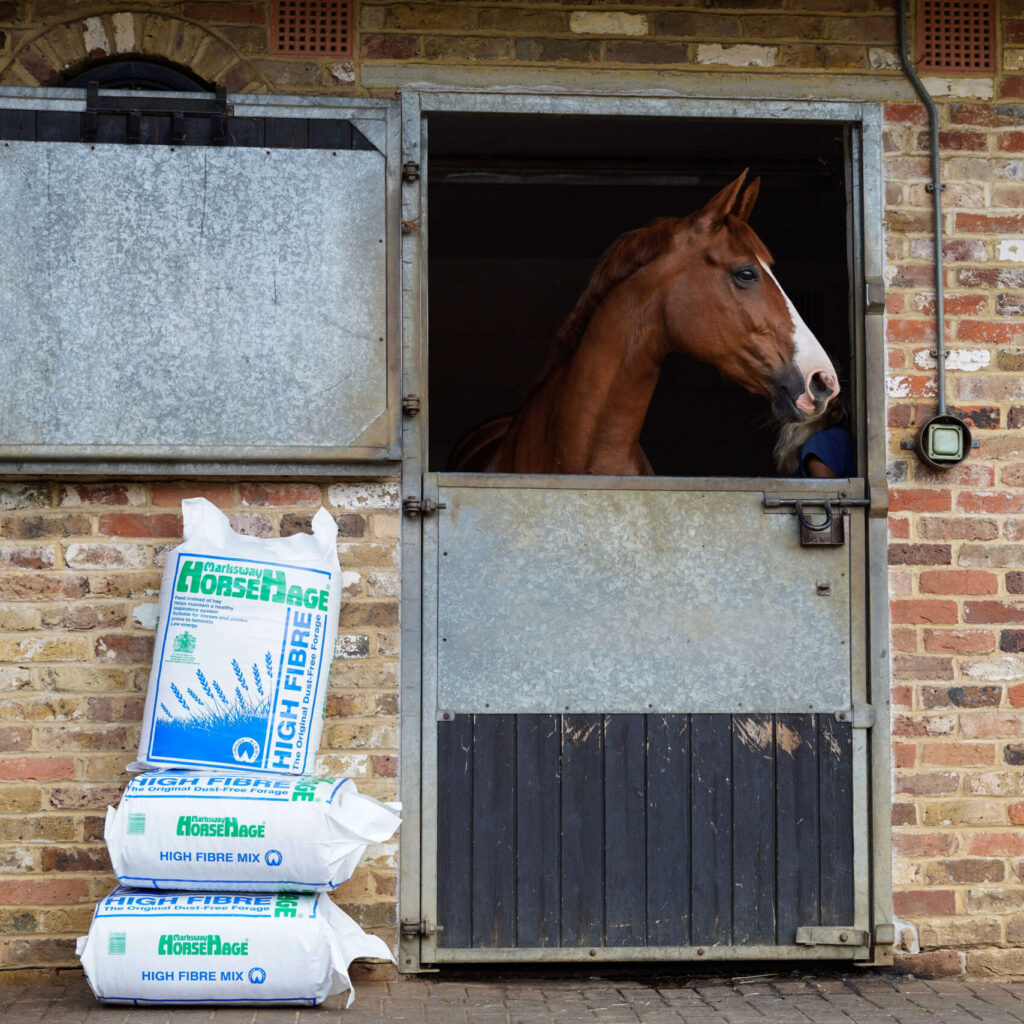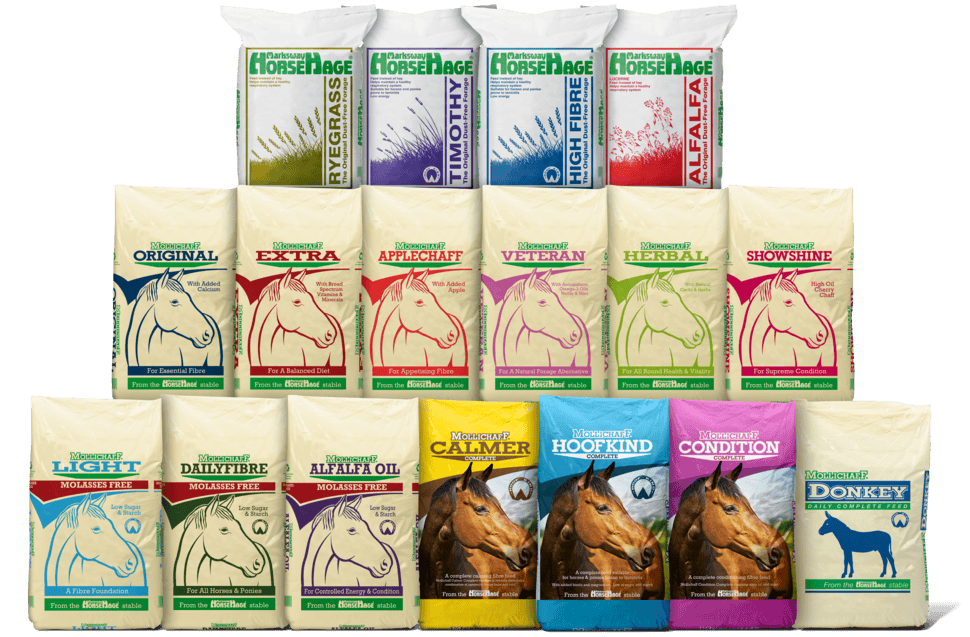
Throughout thousands of years of evolution, horse’s digestive systems have developed to become best suited to digesting large quantities of fibrous forage. A diet high in fibre is essential for the horse’s physiological and psychological well-being.
Providing your horse with a diet that is high in fibre closely replicates the natural diet of wild horses. It is essential that the modern horse has access to fibre sources of the correct amount and nutrient levels to meet their energy requirements, support digestive health and fulfil their psychological need to chew.
A diet lacking in fibre can be detrimental to the mental state of the horse and may lead to significant health complications such as colic, diarrhoea, stomach ulcers and other illnesses.
Why is Fibre Important in a Horse’s Diet?
Fibre is essential to the health of every horse, whether the horse is in a domestic or performance setting. Amongst other benefits, a high-fibre diet contributes to a healthy gut, adequate energy levels and a strong immune system.
Helps Reduce Excitable Behaviour in Fizzy Horses
A high-fibre diet can also help to reduce excitable behaviour in fizzy horses, serving as a slow-release energy source. A high starch diet may encourage undesirable testy behaviour.
Reduces the Risk of Stomach Ulcers
Fibre acts as a natural buffer for the stomach’s natural acids, preventing damage to the stomach lining. A diet lacking in high-quality fibre sources can contribute to the development of painful stomach ulcers in horses.
Relieves Boredom
Horses have evolved to spend a large proportion of their time eating. Horses that are routinely stabled with low levels of fibre provided or that have very limited access to pasture/grazing areas can suffer with boredom.
When fed a diet with a higher proportion of concentrate feeds, and a low inclusion of fibre, horses typically consume their feed faster and thus have prolonged periods when they are not eating which can also contribute to boredom, and other problems.
Providing a high-fibre forage means the horse spends more time chewing, which is closer to their natural eating pattern. The increased amount of time spent chewing also produces more saliva, which can help to neutralise stomach acidity levels, which as referenced above can help to prevent the onset of stomach ulcers.
Boredom, lack of fibre, reduced movement, and the inability to fulfil the psychological need to chew may contribute to unusual behaviours such as cribbing, weaving, or box-walking known as stereotypies. Stereotypies have not been observed in wild horses.
High Fibre Forage and Feed Options from HorseHage and Mollichaff
HorseHage High Fibre is a dust free forage that makes a great option for riding club and Pony Club horses, as well as those that are resting or convalescing. It can also suitable for horses and ponies prone to laminitis because of its typically low sugar and starch content.
Mollichaff Light Molasses Free is low in sugar, starch and calories and provides a high fibre foundation for your bucket feed for horses and ponies in all levels of work.
For advice on the best feed for your horse and the benefits of a high-fibre diet for horses, contact us on our dedicated helpline on 01803 527274.
Want free nutritional advice?
Our friendly and knowledgeable team is available on weekdays from 9am to 5pm.
Give us a call at 01803 527274 or send an email to sales@horsehage.co.uk


